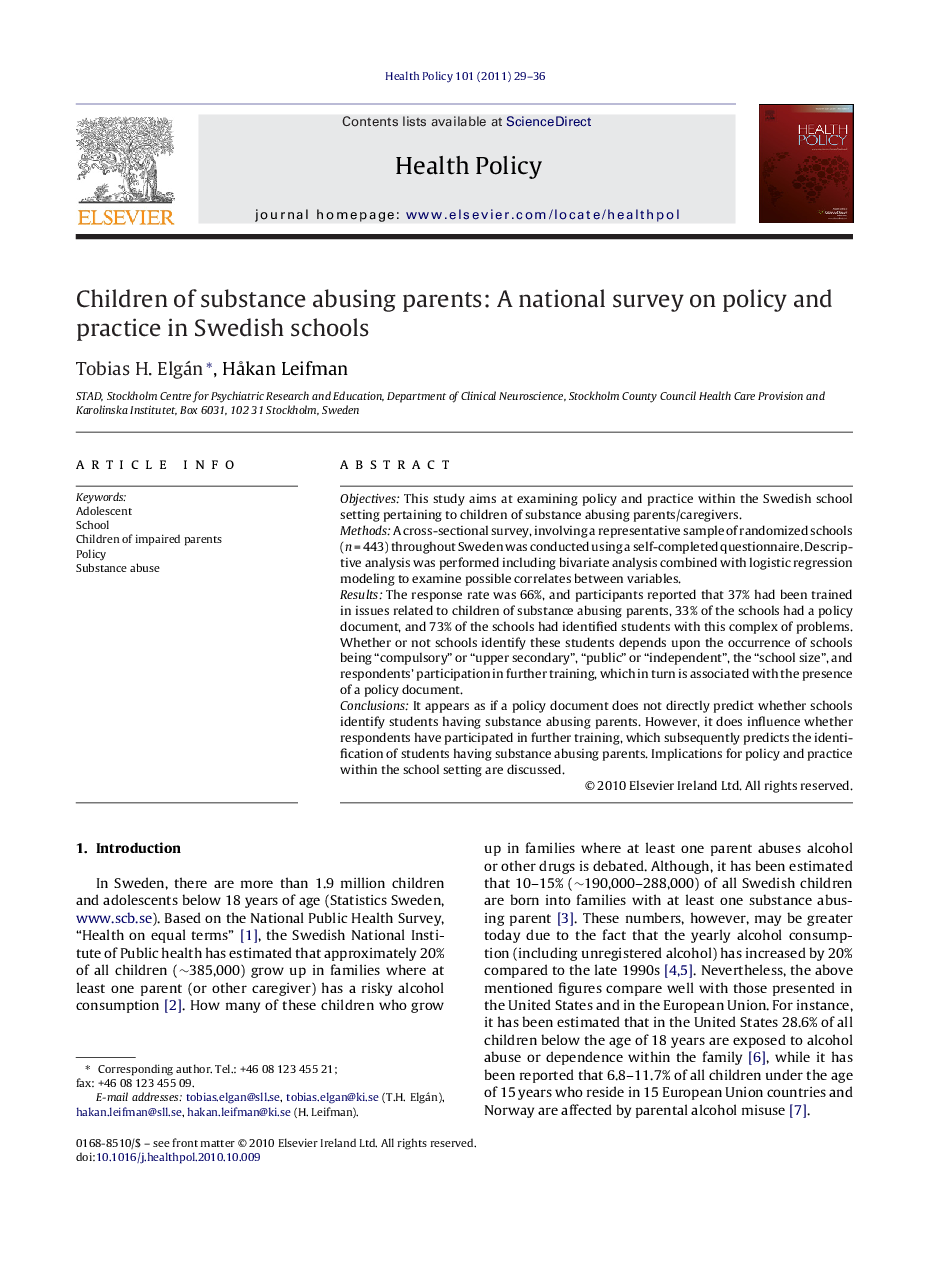| Article ID | Journal | Published Year | Pages | File Type |
|---|---|---|---|---|
| 4198137 | Health Policy | 2011 | 8 Pages |
ObjectivesThis study aims at examining policy and practice within the Swedish school setting pertaining to children of substance abusing parents/caregivers.MethodsA cross-sectional survey, involving a representative sample of randomized schools (n = 443) throughout Sweden was conducted using a self-completed questionnaire. Descriptive analysis was performed including bivariate analysis combined with logistic regression modeling to examine possible correlates between variables.ResultsThe response rate was 66%, and participants reported that 37% had been trained in issues related to children of substance abusing parents, 33% of the schools had a policy document, and 73% of the schools had identified students with this complex of problems. Whether or not schools identify these students depends upon the occurrence of schools being “compulsory” or “upper secondary”, “public” or “independent”, the “school size”, and respondents’ participation in further training, which in turn is associated with the presence of a policy document.ConclusionsIt appears as if a policy document does not directly predict whether schools identify students having substance abusing parents. However, it does influence whether respondents have participated in further training, which subsequently predicts the identification of students having substance abusing parents. Implications for policy and practice within the school setting are discussed.
